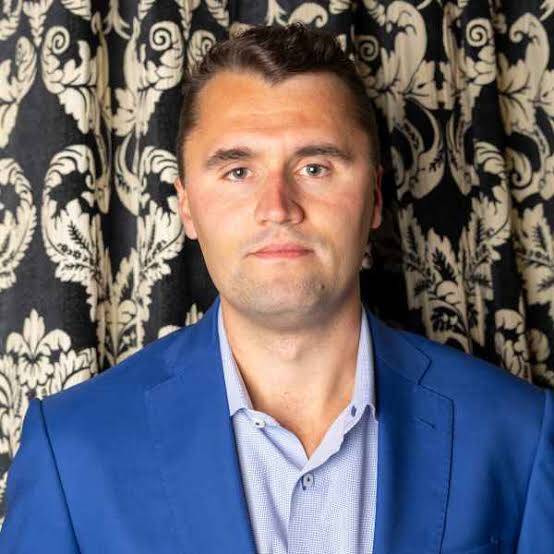The Man Behind The Microphone.

Here in Southern Missouri, we’re no strangers to strong opinions—and we’re proud of that. Around here, we believe in front porch conversations, agreeing to disagree, and treating folks with respect, even when we don’t see eye to eye. That’s why the recent assassination of Charlie Kirk struck such a deep chord. No matter your views on his politics, Charlie stood for open dialogue and believed that when we stop talking to each other, that’s when things go wrong. In this article, we want to take a closer look at the man behind the microphone—not the headlines, not the soundbites. If you’ve never listened to his “Prove Me Wrong” forums, we’d encourage you to watch a few. You might not change your mind, but you’ll come away with a better understanding of who he was and what he stood for.
Southern Missouri Lifestyle Magazine believes that different views are always worth listening to and that no one should ever be harmed because of their voice.
The Beginning

(Courtesy: Getty Images)
"No matter how good of a life you live, no matter how many boxes you check off, we are all in need of the sacrifice and gift that is Jesus Christ. And if you if you accept Jesus into your life, you will be made a new person. You will be born again."
In the leafy Chicago suburbs where quiet lawns and orderly streets whispered conformity, a lanky boy with a voice too big to stay hushed emerged.
Charles James “Charlie” Kirk was born October 14, 1993, in Arlington Heights, Illinois, and raised in nearby Prospect Heights by a mother who worked as a mental-health counselor and a father who practiced architecture. Even before he discovered politics, he made his mark in the Boy Scouts, earning the rank of Eagle Scout—an early testament to his restless striving.
But by his early teens, Charlie had outgrown typical suburban concerns. He wasn’t content with teenage daydreams—he wanted debate. He volunteered on a Senate campaign in high school, organized protests over school cafeteria cookie price hikes, challenged textbooks he felt leaned liberal, and sparred with teachers he viewed as ideologically locked in.
Classmates sometimes called him arrogant, even rude. In crowded hallways where nuance was scarce, Charlie carried himself like a steel‑spined outsider, eager to argue, unwilling to shrink. Yet it’s in those very crucibles of resistance that he learned: if your voice is sharp and persistent enough, others—yes, even your critics—will lean in and share their viewpoint.
Just days after high school graduation in 2012, with little more than $1,800 in graduation money and a conviction that students deserved a platform, Charlie launched Turning Point USA (TPUSA). He joined forces with Bill Montgomery, a Tea‑Party veteran who became both mentor and financier in his early years.
What began as a student group took wings quickly. TPUSA chapters sprouted on campuses coast to coast. Its' signature message: free markets, limited government, individual liberty—ideas Charlie believed were fading in the hush of mainstream discourse.
Yet as the organization soared, so did criticism: that TPUSA rubbed up against, or even stifled, dissent. Still, there were others—Bill Maher, paradoxically—whom Charlie lauded for pushing back against the excesses of “wokeness.” "You had more moral courage than pastors," he told the comedian in one candid exchange. That kind of acknowledgment hinted at a paradox: Charlie didn’t always share a critic's ideology. But he respected the act of speaking out.

(Courtesy: TPUSA)
"If our money and our sporting events and our airplanes have armed guards, why don’t our children (school violence)?"
Bridging the Divide: Turning Point USA’s Unexpected Reach
Though often framed as a bastion of youthful conservatism, Turning Point USA, under Charlie Kirk’s leadership, quietly became something more nuanced: a platform for ideological friction, not purity. While its core message—championing free markets, limited government, and constitutional principles—clearly aligned with right-of-center politics, the movement’s structure drew in independent thinkers, disillusioned Democrats, and even progressive students eager to engage in spirited, uncensored debate. It wasn't uncommon to find self-described liberals attending TPUSA events not to be converted, but to be heard—and that was precisely what Charlie wanted.
Charlie often said that the “free marketplace of ideas” couldn’t function if only one voice was allowed at the microphone. He insisted that his events include open Q&A sessions where critics could challenge him in real time—whether about climate change, racial equity, gender identity, or economic policy. And while the pushback was fierce, many students—even those fundamentally opposed to TPUSA’s politics—returned for follow-up events, drawn by the promise that their voice wouldn’t just be tolerated, but amplified. “It wasn’t about converting everyone to Republicanism,” one liberal student at Missouri State University later reflected, “It was about finally being in a room where it was okay to disagree—and still be respected.” In an era of echo chambers, that made Turning Point, at its best, something radical: a home for conversation that didn’t require conformity.
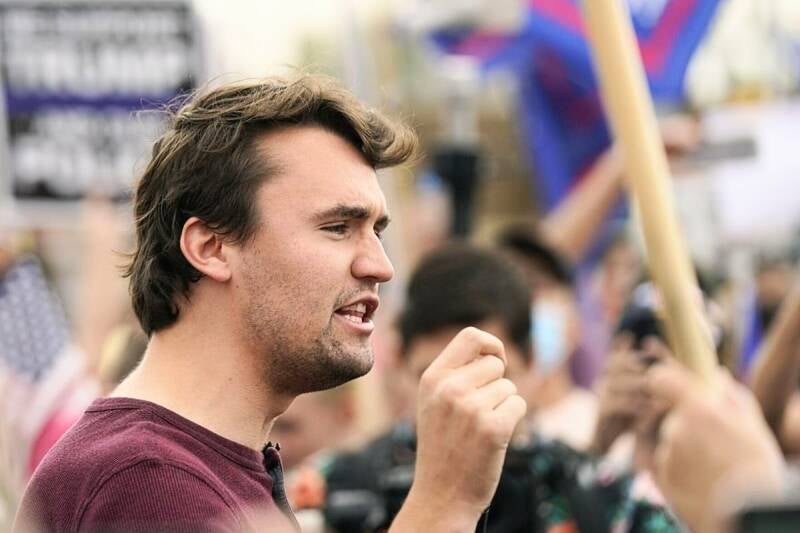
(Courtesy: TPUSA)
"My job every single day is actively trying to point listeners toward ultimate purposes and toward getting back to the church, getting back to faith, getting married, having children. That is the type of conservatism that I represent, and I’m trying to paint a picture of virtue, of lifting people up, not just staying angry."
"Prove Me Wrong”... The Art of Confrontation with Civility
At the heart of Charlie Kirk’s campus events was a simple, hand-lettered sign that came to symbolize his approach to political dialogue: “Prove Me Wrong.” It wasn’t just a slogan — it was a challenge. A dare. A call to intellectual arms.
Inspired by a cultural hunger for open debate and perhaps influenced by similar tactics used by internet personalities like Steven Crowder, Kirk took the idea further. For him, “Prove Me Wrong” wasn’t about owning his opponents — it was about inviting disagreement as a way to sharpen truth. It embodied his belief that conviction meant nothing if it couldn’t stand under pressure. He wanted to meet disagreement head-on — not through social media threads or anonymous comments, but face to face, mic in hand, in front of crowds.
Whether the topic was climate policy, abortion rights, immigration, or gender identity, Kirk stood before students and critics with unapologetic views and an open mic. He didn’t screen the audience. In fact, he often encouraged the harshest critics to speak first. “I want the people who hate me in the front row,” he once joked during a Missouri State University Q&A. And it wasn’t just for theatrics — he meant it. That format turned TPUSA events into civic laboratories where real-time disagreement replaced passive lectures.
Though some accused him of using the format to corner or embarrass students, others saw it as a rare example of public disagreement without censorship. One student called it “nerve-wracking, but empowering,” adding, “I never thought someone that high-profile would actually listen and respond to me directly — especially someone I disagree with.”
To Kirk, that was the point. In a polarized world, “Prove Me Wrong” was less about being right than about being willing to test your ideas in the fire. And he expected others to do the same — not in the shadows, but in the open.

(Courtesy: Getty Images)
“Only in America could a President (Trump) achieve the lowest ever black and Hispanic unemployment, have black business startups skyrocket 400%, see wages go up for black workers, advocate for prison reform, pardon wrongfully convicted people of color, and still be called a racist.”
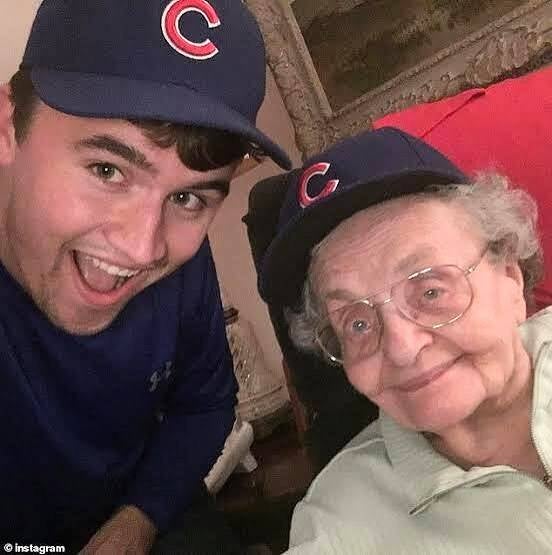
(Courtesy: TPUSA)
“You will never live in a society where you have unarmed citizenry and you won’t have a single gun death. I think it's worth it. I think it's worth to have a cost of, unfortunately, some gun deaths every single year so that we can have the Second Amendment to protect our other God-given rights. That is a prudent deal. It is rational.”

(Courtesy: TPUSA)
"Many textbooks fail to present students with both sides of an issue. Students are being pushed toward an education that demonizes free enterprise while advocating top‑down government, deficit spending and class warfare. Conservatives are branded bigots and we are falsely accused of hate speech when we express traditional values and ideas that have made America the greatest country on Earth."

(Courtesy: TPUSA)
"Democrats have given hundreds of billions of dollars to illegals and foreign nations, while Gen Z has to pinch pennies just so that they can never own a home, never marry, and work until they die, childless. You don't have to stay poor. You don't have to accept being worse off than your parents. You don't have to support leaders who lied to you and took advantage of you for your vote."

(Courtesy: TPUSA)
"The Bible is not up-to-date, it's ahead of time."
"Prove Me Wrong" in the "Show Me State
For Charlie Kirk, holding the “Prove Me Wrong” stage was never about grandstanding. It was built on a belief that truth thrives under pressure. In his own words, one of his primary goals was “to see where we agree or disagree”—not just to preach to the converted, but to stand exposed to friction. That exposure, he believed, forced both speaker and listener to sharpen their ideas, question assumptions, correct misunderstandings. “[Speech will get you towards some approximation of truth],” as he put it, meaning that clarity often emerges through contest.
By 2023, Charlie had become a campus-touring fixture, but his visit to Missouri State University in Springfield would leave a particularly sharp impression.
Held on October 19, 2023, at the Plaster Student Union Theater, the event drew over 1,400 registrants, a number that far exceeded what the venue could legally hold. As students poured into the lobby, security was forced to cap attendance at just 580 people, citing fire-code restrictions. Hundreds were turned away.
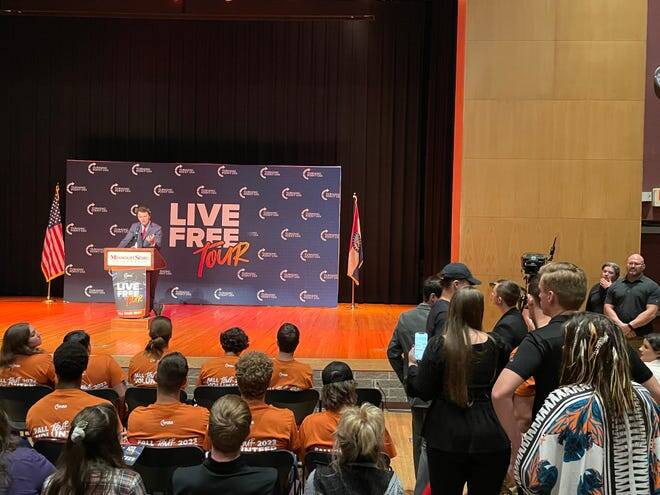
(Courtesy: Springfield News-Leader)
"I started a college campus-based nonprofit in June 2012 called Turning Point U.S.A. to target millennials in college. Our mission was to create a powerful conservative grassroots activist network on campuses and identify, educate, train and organize students to promote the principles of freedom, free markets and limited government."
Kirk said at the 2023 Missouri State University event that immigration to the U.S. should be entirely stopped and any person who hated America or its allies should leave.“There's nothing racist or xenophobic about loving the country so much that you don't want people who hate your country to come into your country,” Kirk said.
Using the example of recent student organizations taking an anti-Israel stance, Kirk floated a question that asked how many sleeper terrorist cells might be active in the U.S., based on the support some groups have shown for Hamas after it attacked Israel. He feels that the country should be more selective about who it lets in. “It drives the left nuts when you say this, that all men are created equal in the eyes of God, all men and women, but not all cultures are created equal,” Kirk said. “To say that, you get attacked in every direction, but excuse me when I say that Western civilization is the best that humanity has produced. It’s an outgrowth of the Bible.”
Using U.S. Rep. Ilhan Omar as an example, Kirk contended that the generosity and benevolence shown by the United States when it allowed Omar to emigrate was wasted on her. "She should be deported,” Kirk said. “She hates the country. She’s a terrorist sympathizer.”
Despite Kirk’s proclaimed support for Israel, he said he felt that U.S. lawmakers should focus on securing the Mexican border rather than sending aid to foreign countries. Kirk said, "The fact that our leaders in both parties (Biden Presidency) are more focused on what's happening in Ukraine than our southern border is a moral disgrace in our country. 2.5 to 3 million illegal immigrants are "invading" the U.S. every year, and that the country is “giving away 1.2 to 1.5 million green cards and family chain migration citizenship on top of that.”
Looking back at American history, Kirk insisted that America is a nation of settlers, rather than a nation of immigrants, because immigrating implies that there was a civilization to assimilate into when people arrived. "There was not exactly a lot of civilization when the first people came to Missouri,” Kirk said. “Is that an immigrant or a settler? It's more of a settling. It's a mindset of going to the frontier, using the Homestead Act to get the land that you can see.”
As the dialogue of viewpoints continued inside, so did it flow outside. Protestors lined the sidewalks. Some carried signs, others held silence. However, Charlie spoke not just to the converted—but to the conflicted.
As the forum continued, Charlie Kirk wanted to exchange views with the audience. In typical fashion, he opened the floor and his “Prove Me Wrong” segment allowed audience members to challenge him directly—and many did. More than 30 people filled the aisle hoping to get a chance to seek his opinion. Some college students trolled Kirk with nonsensical questions and arguments involving former President Obama’s ethnicity, as well as abortion and gender rights.
Other adult attendees asked Kirk for advice on personal struggles that they faced. Some students sought Kirk’s advice on how to combat ridicule for identifying as a young conservative or Christian. He responded with a combination of facts, fervor, and at times, disarming humility.
Some shouted. Some applauded. Some walked out. But most stayed. Because even if they disagreed, they were being heard.
“With all of the pressing challenges that face humanity, like the most suicidal generation in history, the most drug-addicted generation in history, the most alcohol-addicted generation in history, the fixation on an abstraction of rising global temperatures is an academic distraction from real material suffering,” Kirk said.
That Missouri night in 2023 wasn’t just another tour stop—it was a living illustration of Charlie’s core belief: "if you’re willing to speak, I’m willing to listen".

(Courtesy: Springfield News-Leader)
"I founded Turning Point U.S.A. to take the fight for ideological diversity directly to a progressive stronghold: the Nation's leading colleges and universities."
Megan Hartman, president of Turning Point USA at Missouri State University, said Kirk's detractors liked to "take his quotes out of context. I met him so many times and he was so nice. He does not scream ever. People just hate that he was right."
"Food For Thought"
If the exchange of ideas could be compared to a smorgasbord of food, then Charlie Kirk always brought the plates. At a Charlie Kirk event, attendees could expect a charged, high-energy atmosphere centered around conservative values, free speech, and American exceptionalism. These gatherings often featured passionate speeches, interactive Q&A sessions, and bold commentary on current political issues, all aimed at energizing and equipping young conservatives. Blending activism with a rally-like spirit, the events spotlighted Charlie Kirk's Turning Point USA’s mission to educate, empower, and engage the next generation of right-leaning leaders.
Charlie Kirk's View on Abortion:
In one of Kirk's events, he was asked how he would respond if his own daughter, at the age of 10, were raped and became pregnant. His response underscored his rigid opposition to abortion in any circumstance, "the baby would be delivered", Kirk said. Kirk has acknowledged that there might be medical necessity exceptions (e.g. life of the mother), for abortion.
“We allow the massacre of a million and a half babies a year under the guise of women's reproductive health. We are allowing babies to be taken away and discarded every single year, just saying they are not humans. You are using dehumanising language, saying ‘ohh it's an embrayo’; no, that's a baby, made in the image of god, deserving protection. It is never right to justify the mass termination of people under the guise of saying that they are unwanted. That's how we get Auschwitz, that's how we got the greatest horror of the 20th century," Kirk said.
When one of the participants at the event questioned, ‘So you are comparing abortion to the Holocaust?’ he responded, saying, "Absolutely, I am. In fact, it is worse. It's worse."
The comment encapsulated Charlie Kirk’s broader view: that abortion, regardless of circumstance, amounted to the taking of a life. Critics accused him of lacking empathy for survivors of sexual assault. Supporters, however, used to praise him for adhering to what he framed as a Biblical, pro-life principle.
Kirk’s hardline position was consistent with his evangelical Christian worldview, which blended politics and religion and often animated his speeches, podcasts, and campus events. He told audiences that there was “no true separation of church and state” and advocated that America remain a Christian nation. At rallies, he called abortion “a spiritual battle,” casting it as central to what he described as the fight between good and evil in American politics.
Kirk on Politics and Movements:
Kirk believed that conservatives should not have to apologize for their identities, and other people’s identities should not be a reason for special treatment, thus he opposed the Black Lives Matter movement stating that it was a way to discriminate against other races, including white people. Again, the ability as Americans to be treated equally and fairly was Kirk's viewpoint. Not who you are, but more of what you do.
Kirk's position on Education:
Charlie Kirk was a vocal advocate for reshaping classroom education to reflect what he called a “classic, pro-American” approach. He strongly opposed the inclusion of Critical Race Theory, gender ideology, and what he referred to as “wokeism” in school curricula, arguing that these concepts promote division, victimhood, and an anti-American worldview. Instead, he supported a return to rigorous academics grounded in patriotism, individual liberty, and traditional values.
Kirk also advocated for greater parental control over what is taught in public schools and criticized teachers’ unions for enabling ideological bias in the classroom. Overall, Kirk’s education stance centered on restoring truth-based, morally grounded instruction that reinforced national pride and cultural stability. For example, ridding the classroom of grievance politics – meaning someone believes they have been marginalized because of their identity, race, gender or sexuality.
The Private Life: A Quiet Strength Behind the Microphone.
Behind the political firebrand was a man transformed by two of life’s most grounding forces: faith and family. In 2021, Charlie married Erika Frantzve, a former Miss Arizona turned ministry leader, podcast host, and entrepreneur.
The two met at a Turning Point USA event, bound not only by shared values but by a mutual belief that political conviction meant nothing without personal integrity. Erika was no stranger to public life, having run the Midweek Rise Up podcast, founded a faith-driven clothing line, and spearheaded Bible in 365, a devotional ministry that reached tens of thousands.
Together, Charlie and Erika had two children: a daughter born in August 2022, and a son born in May 2024. Unlike many in the public eye, the Kirks made an intentional decision to shield their children from social media and press scrutiny. Their names, faces, and personal details remained protected—a rare boundary in the influencer era.

(Courtesy: TPUSA)
"Jesus Christ was God in human flesh. Who first and foremost taught us how to live and secondly and most importantly He was a gift to us; that if we accept Him as our Lord and Savior then we can have eternal life.”
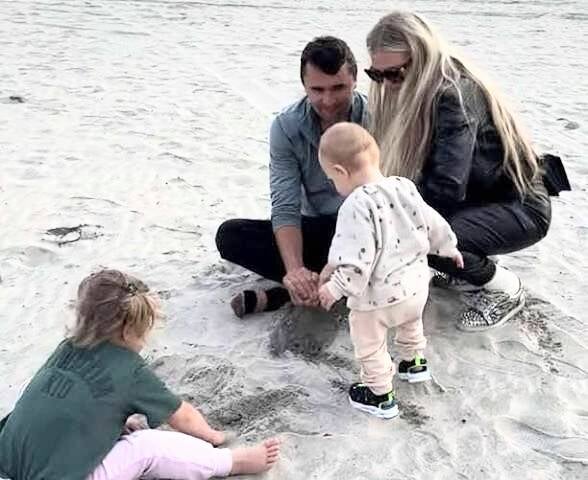
(Courtesy: Getty Images)
"Having children is way important than having a career. My children matter more than how many social media followers I have."
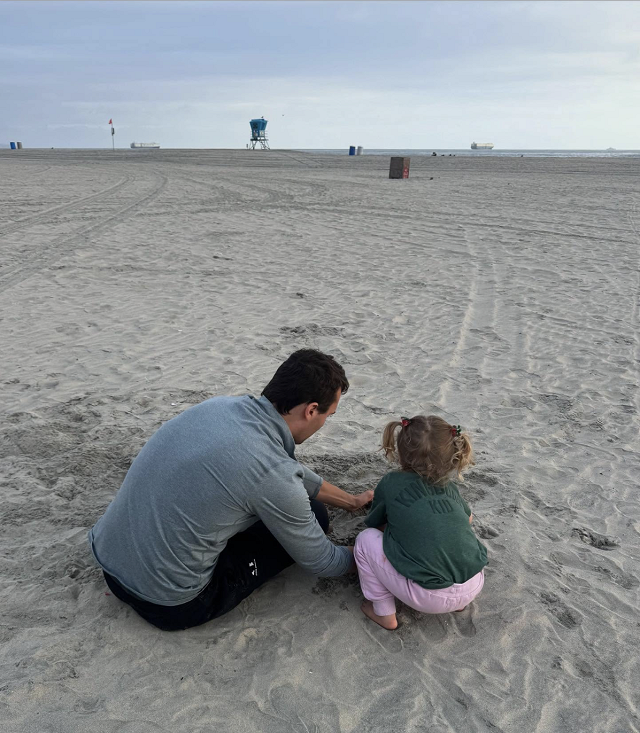
(Courtesy: Family Studies)
"Having a family will change your life in the best ways, so get married and have kids. You won’t regret it. We should also be teaching our kids how to think, not what to think.”
But for those who knew Charlie personally, fatherhood was perhaps the most striking change of all.
"Holding my daughter for the first time… it was like every argument I’ve ever had, every policy I’ve ever debated—it all became real," he once said privately, according to a family friend.
"You suddenly realize you're not just fighting for ideas. You're fighting for the world they're going to grow up in."
Colleagues and confidants noticed the shift. His speeches became more pointed, more urgent, but also more personal. “I fight differently now,” he told one supporter backstage in 2024. “Not just for America. For my kids.”
Controversial Quotes by Evangelical Christian Charlie Kirk — What He Really Meant

(Courtesy: TPUSA)
The media often highlights provocative statements by Charlie Kirk without full context. Here's a fact-based, thoroughly researched and fair breakdown of several controversial remarks — with explanations of what he meant and what the truth actually is.
1. Some gun deaths are worth it to preserve the Second Amendment.
What He Meant:
Kirk argues that while tragic, some gun violence is a risk worth taking in order to preserve the fundamental right to bear arms. He believes the Second Amendment protects citizens from tyranny and overreach, and that sacrificing liberty for perfect safety is a dangerous trade-off.
The Truth:
This echoes a long-standing philosophical argument about freedom vs. safety. Critics omit that he's defending civil liberty, not cheering violence. Still, many disagree with his priorities.
2. We made a huge mistake passing the Civil Rights Act.
What He Meant:
Kirk says that while the Civil Rights Act addressed real injustices, its long-term use has allowed government overreach and led to DEI policies that he believes now discriminate against others, particularly white Americans.
The Truth:
He wasn’t rejecting racial equality, but criticizing how the Act is interpreted today. Media often leaves out that distinction. However, civil rights advocates strongly disagree with his framing.
3. Islam is not compatible with Western civilization.
What He Meant:
He clarifies this is about radical Islam or political Islamism — not all Muslims. He argues certain interpretations of Islamic law conflict with values like free speech, gender equality, and religious liberty.
The Truth:
This is a broad generalization and often heard as anti-Muslim. His defenders say he’s targeting ideology, not individuals. Critics argue his language is inflammatory and unfair.
4. Transgenderism is a mental disorder.
What He Meant:
Kirk opposes gender ideology and believes identifying as a different gender contradicts biology. He views medical transitions, especially for minors, as harmful and ideologically driven. He often frames it as protecting children and biological reality.
The Truth:
His views align with some conservative and religious groups, but conflict with the medical consensus from groups like the APA and AMA. Critics say he dehumanizes trans people, though he says he opposes ideas, not people.
5. Prowling Blacks” and criticism of DEI / Civil Rights Act as “anti-white.
What He Meant:
Kirk often points to what he views as racial double standards. He cites crime statistics and claims DEI programs and modern race politics unfairly target white Americans or create division rather than healing.
The Truth:
While it’s true some DEI programs are controversial, Kirk’s language (e.g., “prowling Blacks”) has drawn sharp rebuke as racially charged and dehumanizing. His critics say he misrepresents systemic racism and downplays historical injustices.
6. There’s no such thing as an unwanted child.
What He Meant:
Kirk is strongly pro-life and believes every life has value. He opposes abortion and argues for adoption or social support systems as better alternatives. He uses emotionally powerful comparisons (e.g., Holocaust references) to highlight the scale of abortion.
The Truth:
Many agree that supporting life is vital, but critics find his comparisons extreme. His phrase “no unwanted children” is aspirational, not factual — as many children do go unwanted or underserved.
Charlie Kirk’s rhetoric is often bold and unfiltered — but many of his statements lose context in media coverage. Whether you agree or disagree with his views, understanding his actual meaning is vital for honest public discourse.
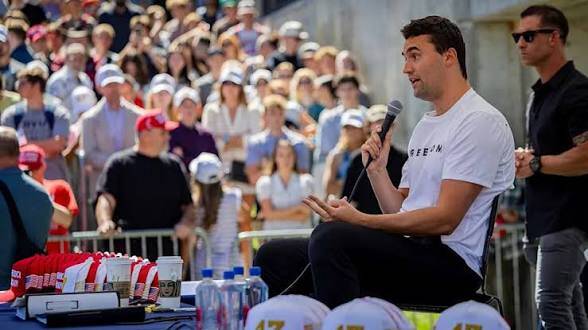
(Courtesy: CNN)
His last public appearnace. Wearing a white shirt with the word “FREEDOM” in black letters, Kirk basked in the cheers of his 3,000-strong flock of admirers and would-be adversaries, casually flinging red and white “Make America Great Again” and “47” caps into the crowd.
The Invitation That Carried a Cost
On September 10, 2025, 31-year-old Charlie Kirk kicked off his ten-campus "The American Comeback" tour in the center of the Utah Valley University campus. His plan, as always, was to engage in a respectful swap of viewpoints and healthy discussion.
About 20 minutes in, a young audience member stepped up to the microphone to do just that.
“Do you know how many transgender Americans have been mass shooters over the last 10 years?” he asked.
“Too many,” Kirk quipped. The crowd clapped and cheered.
"Five", the audience member claimed. “Do you know how many mass shooters there have been in America over the last 10 years?” the man continued.
Kirk leaned forward and picked up his mic before setting back into an upright position. “Counting or not counting gang violence?” he said.
A loud “pop” suddenly rang out. The crowd scattered. Charlie Kirk, the man behind the microphone, was fatally wounded. His final action was responding to a student’s "Prove Me Wrong" comment. He was doing what he had always done: listening.
Here was a figure who staked his life on the idea that disagreement didn’t always require disconnection—that democracy’s pulse thrived when voices clashed, not when they silenced one another.

(Courtesy: CNN)
Turned in by his own family, Tyler James Robinson eventually surrendered to authorities the day after Kirk’s killing with help from a family friend who was also a local law enforcement official. Among his first confession to law enforcement officials, Tyler stated, "I had the opportunity to take out Charlie Kirk and I’m going to take it."
The Killer
On September 10, 2025, Tyler James Robinson, a 22‑year‑old from Utah, was formally charged with assassinating Charlie Kirk after authorities say he fired a single long‑range rifle shot from a rooftop at Utah Valley University, striking Kirk in the neck as he spoke before a crowd. Prosecutors allege Robinson planned the attack for over a week, driven by what he described in messages to be Kirk’s “spreading hate,” and left evidence in his wake — a note hidden under a keyboard saying, “I had the opportunity to take out Charlie Kirk and I’m going to take it,” as well as online exchanges, bullet casings bearing engraved mockery, and DNA linking him to the rifle’s trigger. He now faces many charges including aggravated murder, felony weapons violations, obstruction of justice, and witness tampering, and Utah prosecutors say they will seek the death penalty.
Prosecutors charged the 22-year-old with capital murder and other crimes after his arrest, evidence proves that Robinson is quoted texting to his partner– whom they described as “transitioning genders”– about having enough of Kirk’s “hatred”, "Some hate can't be negotiated out."
A Gathering of Missouri State Students Pay Tribute
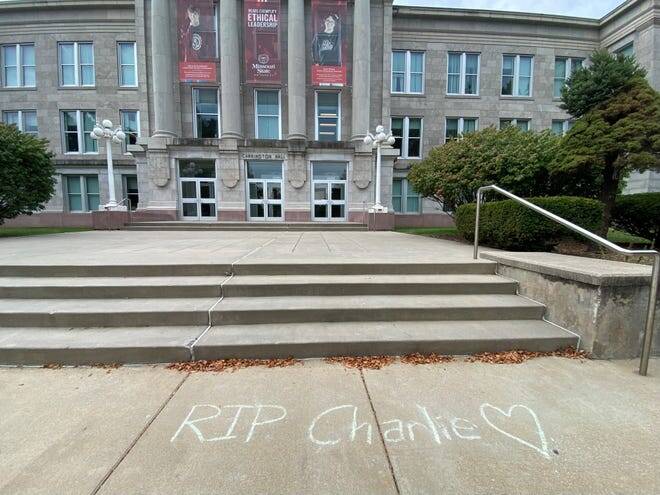

(Courtesy: Getty Images)
"One of the most horrifying and surprising evolutions we have witnessed among our widespread campus network is the rapid movement away from tolerating opposing ideas and respectful debate to the deployment of obscene bully tactics from the left."
Just days after his assassination and in mid‑September, 2025, Turning Point USA students at Missouri State University held a prayer vigil in honor of Charlie Kirk. Megan Hartman, president of Turning Point USA at Missouri State, said she had met and heard Kirk multiple times, "It's been hard. It seems real and then I'll cry and it does not seem real. We are all horrified that it happened," Hartman said of Kirk's assassination. She said organizing the vigil is a way to honor Kirk and keep his movement alive, "It's important to me because he is such a pure person. He loved everybody, even if they hated him". She said organizing the vigil is a way to honor Kirk and keep his movement alive.
Hartman said the killing has strengthened the resolve of many of his supporters and others who identify as both Christian and conservative. "Posthumously, he will continue to ignite the Christian conservative movement," she said.
MSU President Richard "Biff" Williams called the killing of Charlie Kirk a "mindless act" and hoped students who witnessed the "horrific event" are getting the support they need.

(Courtesy: TPUSA)
"Never give up, never surrender, and always go for the win. Greatness, on the other hand, requires the liberty and the drive to make the most of yourself. Young people have the power to shape the future; don’t underestimate your voice!”
Catalyst, Not Just a Commentator
Charlie Kirk’s rise from a suburban Chicago teenager with a Twitter account to a central figure in American conservatism is a story of unusual velocity—but his legacy may be best measured not by the crowds he drew, but by the people he launched. Through Turning Point USA and its growing ecosystem of affiliate organizations, Kirk became a cultural lightning rod and a political kingmaker, particularly for a generation of conservatives who found themselves energized by his unfiltered rhetoric and unapologetically combative style.
But he didn’t just move audiences—he moved people into politics.
In the span of a decade, Kirk helped shape the ambitions and trajectories of numerous young conservatives, many of whom now hold elected office or key positions in government. From private mentorship to public endorsements, he played the role of recruiter, connector, and validator—someone who not only spotlighted conservative talent, but helped push it into positions of power.
One of the most prominent examples is Vice President J.D. Vance, who was a best-selling author before he was a politician. Kirk was an early admirer, first reaching out via Twitter and later connecting Vance with political operatives and donors that would help launch his successful Senate campaign. The relationship, while informal, became emblematic of how Kirk’s influence operated—behind the scenes, through networks, nudges, and a knack for recognizing political potential early. "So much of the success we've had in this administration traces directly to Charlie's ability to organize and convene," Vice-President J.D.Vance said, "He didn't just help us win in 2024, he helped us staff the entire government."
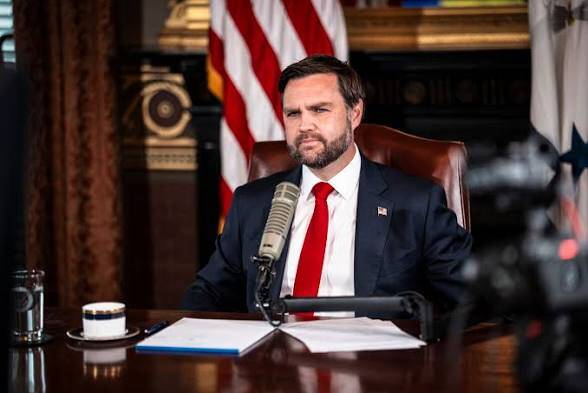
(Courtesy: NBC Néws)
US Vice-President JD Vance hosted "The Charlie Kirk Show", September 15, 2025. Throughout the podcast, Vance paid tribute to his friend and reflected on his legacy. He also welcomed several guests, including Trump advisor Stephen Miller, Health and Human Services Secretary Robert F Kennedy Jr, Tucker Carlson, and White House Press Secretary Karoline Leavitt.

(Courtesy:PBS News)
"No one understood or had the heart of the youth in the United States of America better than Charlie," 45th and 47th President Donald Trump said after Kirk was murdered while speaking at a college in Utah.

(Courtesy: Getty Images)
"When so many influential voices in our society are brainwashing young people to abandon our faith, stay single, not to have children and to bash our country, Charlie Kirk offered us an alternative path." Karoline Leavitt, White House Press Secretary.
Inspiring A Younger Generation
Charlie Kirk had a way of energizing a generation of young people who often felt that politics had left them out. Through Turning Point USA and his campus appearances, he pushed many of them to believe they could make a difference—that their voice mattered, and that getting involved wasn’t just optional, but urgent. He bridged the gap between activism and identity for many, especially young conservatives, and gave them tools, a platform, and confidence to engage. Whether organizing, speaking out, or even running for office, many say Kirk helped them see what was possible—and persuaded them to step forward when they otherwise might have stayed on the sidelines.What separates Kirk from many other movement figures was his intuition for momentum—not just political, but personal. He knew when someone was on the cusp of something, and he had the connections to help them cross that threshold. For the young conservatives coming of age in the Trump era, Kirk wasn’t just a commentator or a culture warrior—he was an enabler of ambition, and in many cases, the first person to whisper: You should run.I want to express my tremendous gratitude to Charlie Kirk. He's really an amazing guy. Amazing guy. And his whole staff for their relentless efforts to achieve this very historic victory," Trump said at a Turning Point gathering in Arizona last December.
Kennedy Peterson, 20, was among the young people who came to Turning Point headquarters to pay tribute after Kirk's death commented, "From the day that he started with the Campus Victory Project, I think that his intentions were to create a world that he thought was better than what we have now."
Tommy Richardson, a 36-year-old from Mesa, Arizona, arrived at the Turning Point headquarters after Kirk's death was announced. He praised Kirk as a charismatic leader who helped shape his generation of conservatives and "was a champion of everything we believe. That's a huge legacy that will have repercussions for the political landscape for decades to come," he said.

(Courtesy: Houston Chronicle)
A glimpse of the multitudes of candlelight vigils held across the world for Charlie Kirk. This one is at Texas A&M University, we're hundreds of students gathered.

(Courtesy: Springfield News-Leader)
"All death can do to the believer is to return them to Jesus. I believe in the Bible, and I believe that Christ rose from the dead on the third day. This is the foundation of my Faith and guides my actions."
However, not everybody agreed with Charlie Kirk. In 2025, Charlie Kirk debated with students at the Cambridge Union Society on views including abortion, women's rights and religion. While some students disagreed with many of his views, they have unequivocally condemned the shooting and recognised his commitment to peaceful debate. Cambridge Union student Sammy McDonald described the death of Charlie Kirk as a "horrendous" act. The History student told the BBC: "Nothing - political or otherwise - can ever justify such a horrendous act or the ruination of the lives of those close to him. Political disagreement cannot be, and must never be, a death sentence. Even in deeply polarised times, we must never lose sight of our humanity and our respect for the sanctity of all human life."

(Courtesy: BBC News)
Sammy McDonald, a Cambridge Union Society student, was the last student due to debate with Kirk, and the US support of Israel's campaign in Gaza was a focal point of their discussion. The Cambridge Union Society, also known as the Cambridge Union, is a historic debating and free speech society in Cambridge, England.
I Am Charlie Kirk
